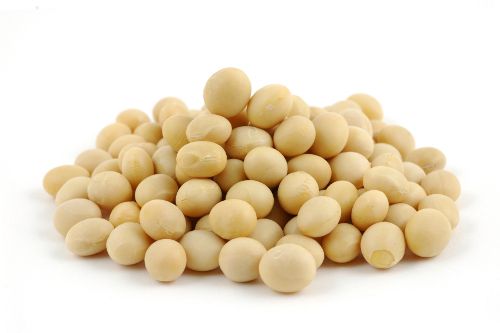FDA Approves Qualified Soybean Oil Heart-Health Claim
The claim confirms soybean oil’s ability to reduce the risk of coronary heart disease.
Photo © iStockphoto.com/bedo

The United Soybean Board (USB; St. Louis, MO) announced the authorization of a new, FDA qualified heart-health claim for soybean oil. The claim states that soybean oil may reduce the risk of coronary heart disease. According to USB, “soybean oil is the most widely used edible oil in the United States.”
The heart-healthy claim states: “Supportive but not conclusive scientific evidence suggests that eating about 1½ tablespoons (20.5 grams) daily of soybean oil, which contains unsaturated fat, may reduce the risk of coronary heart disease. To achieve this possible benefit, soybean oil is to replace saturated fat and not increase the total number of calories you eat in a day. One serving of this product contains [x] grams of soybean oil.”
USB says that the claim is supported by comprehensive review of scientific literature as well as government and professional recommendations. Per FDA, qualified health claims are supported by scientific evidence, but “do not meet the significant scientific agreement standard” that unqualified health claims do.
Penny M. Kris-Etherton, co-author of “Dietary Fats and Cardiovascular Disease, A Presidential Advisory from the American Heart Association” (June, 2017), commented on soybean oil’s ability to reduce heart disease in a press release following approval of the health claim: “We conclude strongly that lowering intake of saturated fat and replacing it with unsaturated fats, especially polyunsaturated fats, like those found in soybean oil, will lower the incidence of cardiovascular disease.”
According to USB, food manufacturers are encouraged to add the heart-healthy label to eligible soybean oil and soybean oil-containing products. Eligible products are those that have a minimum of 5 g soybean oil per reference amount customarily consumed (RACC).
USB also notes that soybean-based product sales are driven largely by the U.S.-grown and heart-healthy label claims, and it cites USB study data that indicate 63% of shoppers are more likely to purchase a product stating that it was made in the U.S., while 87% of consumers are more likely to purchase the product after learning of the potential health benefits.
The health-claim petition was submitted to FDA by ingredient supplier Bunge Ltd. (White Plains, NY).
HHS announces restructuring plans to consolidate divisions and downsize workforce
Published: March 27th 2025 | Updated: March 27th 2025According to the announcement, the restructuring will save taxpayers $1.8 billion per year by reducing the workforce by 10,000 full-time employees and consolidating the department’s 28 divisions into 15 new divisions.







